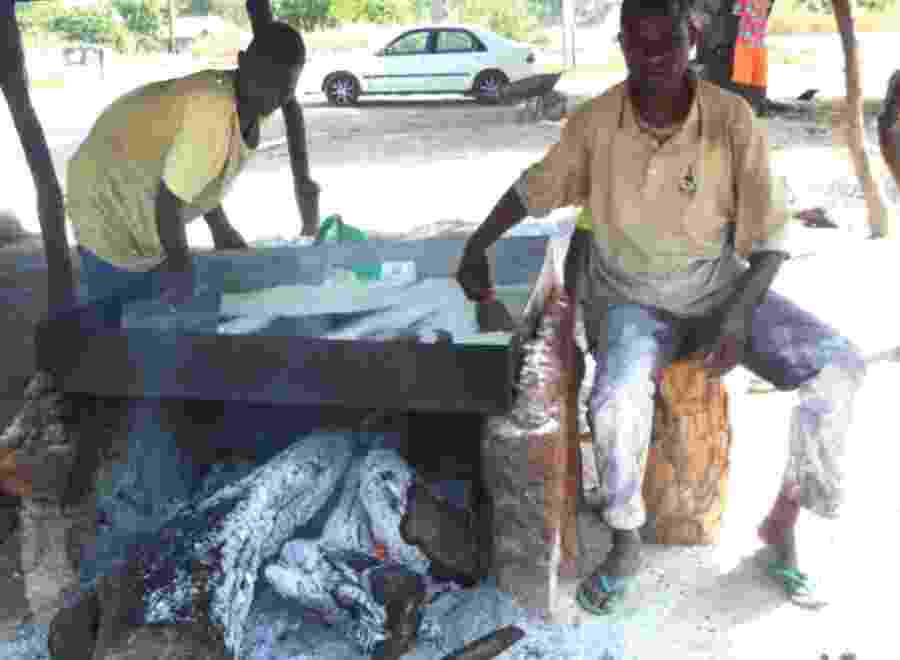Lafia ‘garri’ processors smile to the bank
Garri processors in Akoza Town on the outskirts of Lafia, the capital of Nasarawa State, are smiling to the bank with profits from their business. The main attraction when one reaches Akoza from the Nasarawa Eggon axis are garri processing sites, among them Ato Sahara Cassava Processing. The agro-business venture uses modern machines and equipment […]

Victor Boohemen fries garri under a shade
Garri processors in Akoza Town on the outskirts of Lafia, the capital of Nasarawa State, are smiling to the bank with profits from their business.
The main attraction when one reaches Akoza from the Nasarawa Eggon axis are garri processing sites, among them Ato Sahara Cassava Processing.
The agro-business venture uses modern machines and equipment which are placed under shades to process cassava into garri.
The about two hectares of the site is filled with shades for frying garri, large space for drying it, equipment for grinding and draining it, logs of firewood and heaps of peeled cassava ready for sale to the garri producers and to those involved in animal husbandry.
Victor Boohemen, who is in charge of the Ato Sahara, said they started on a small scale but that they had grown big now.
He said, “The process of producing garri starts with buying cassava tubers from farmers. We hire vans to pick the cassava from the farms to the processing site. We hire women who peel the cassava, wash it and then we use a locally fabricated diesel machine to grind the cassava into paste.
“We put the paste into sacks and place under jacks to press it to drain water. When the water is drained, we sieve it and start frying. The chaff is dried and ground into flour which is called in local parlance ‘alibo.’”
Boohemen said he was employed in the garri processing venture since 2014 and that it took him about three months to master the process.
He said since garri was one of the staple foods in Nigeria, getting the market was not difficult, saying they produced and sold to traders from far and near.
He further said they produced mainly the white garri, but that they could produce the yellow one on demand.
Boohemen said processing the yellow garri was expensive since they had to mix the cassava with palm oil at the stage where it was ground before it was pressed and fried.
He added that the palm oil gave the garri flavour and was a source of Vitamin A; but that it was more expensive.
It was observed that only young men do the frying, women
do the sieving and drying, children run errands, while the adults sit under the shade to supervise the production, and receive visitors and customers.
Boohemen said for a starter in the business of garri processing, one needed to start with a capital of about N200,000 after one had identified a good source or nearness to cassava producers, a field for drying the garri, like one hectare, mud or steel plates for frying, fabricated heavy duty jacks, diesel grinding machine, labourers and a good market.
A market survey shows that a pickup load of fresh cassava goes for N20,000, while a 100kg bag of garri sells for N8,000, but when demand surpasses supply, the price can rise to N35,000 per bag, and theb processors make extra profit from selling the cassava peels to animal farmers, as they sell each bag at N,1000.
Boohemen said most of their customers came from Kaduna, Nasarawa Eggon and Akwanga, among many other places.
He, therefore, called on government and its agencies to liaise with them to have more modern means of processing the garri for local consumption and even to be exported.
